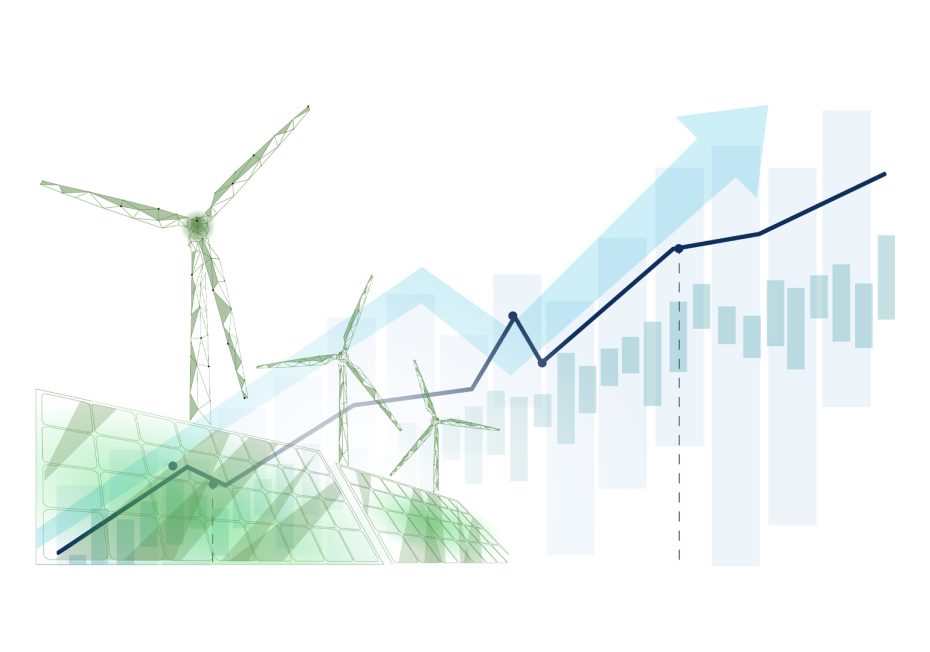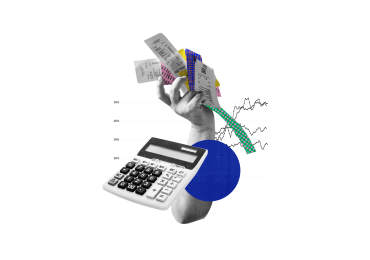Electricity is considered one of the most valuable sources of energy. Moreover, renewable energy has no alternative; in time, it should completely replace fossil fuels (petroleum, natural gas and coal). According to the special report from the International Panel on Climate Change (‘Renewable Energy Sources and Climate Change Mitigation’) “by 2035 renewable energy will reduce fossil fuel emissions by 21% and supply up to 45% of global electricity, and by 2050 it will supply up to 77% of global electricity.” In the modern world, the electricity demand is high, and there is an expectation that the installation of different sources of renewable energy generation will increase dramatically. On the one hand, energy security – especially any renewable energy sources – is considered a vital part of a country’s general security because it enables a state to be less dependent on imported energy sources and become a more export-oriented country.
On the other hand, there may be circumstances when public interest outweighs the interest in energy security.
It is important to review electricity as follows:
- A type of “property”, “asset”, or “production” (all these terms have the same meaning in this article, as the purpose is to analyze the fundamental feature of electricity as a final economic good);
- The subject of expropriation.
The below article describes the relevant Georgian legislation and several clauses of the Energy Charter Treaty (ECT) within the framework of these two issues and presents a recommendation based on these.
THE LEGAL NATURE OF ELECTRICITY
There is no doubt that electricity has economic value. It is widely advantageous and transferable. Electronic signals in the form of waves can be treated as goods. Because of these factors, an appropriate capacity may be calculated, and the price for a certain kilowattage of electricity varies. In legal terms, electro-energy is bought and sold ordinarily as a “property”, “asset”, or “good” like any other commodity. Over lengthy distances, it can be transmitted subject to different agreements. In terms of electrons, electricity is considered a material object. It doesn’t have the character of a “movable” or “immovable” corporeality. Electricity can also be described as a substantial action that occurs through the cables carrying it.
All commercial transactions concerning electricity are firstly dependent on finding out whether electricity is a movable or immovable good. This subsequently triggers the appropriate clause of the commercial or intergovernmental agreements concerning the domestic or cross-border purchase of electricity. Some types of “goods” may be transferable or capable of transmission, and there is no necessity for the “property” to be tangible and/or have any other physical aspects. Contrary to the classical meaning of a “movable asset”, electro-energy is not tangible or visible and cannot move physically. Conversely, the diverse sources of fossil fuel electricity do not have a material substance. We cannot physically conserve them, but we can measure the volume of electricity as a condition for commercial trading.
The widespread view, which is based on scientific approaches, the EU directive and/ or different judicial thoughts and deductions, is that electricity is considered a movable property because its transmission carries out by special cables and equipment. Considering this, there is no doubt that if the good is invisible and unmaterial, it does not always mean immovable. According to the civil code of Georgia (Article 149): “Immovable things shall include a plot of land with its subsoil minerals, the plants growing on the land, buildings and other structures firmly attached to the land.” Due to this law, electricity cannot be described as immovable property because of the following circumstances: Electricity may be transmitted, distributed, or delivered and not physically connected to the ground.
Electricity generated as a produced good or an asset is treated as a “product”, but considering its invisible nature and transmission by grids, it may also be considered a “service”.
The Georgian legislation doesn’t unambiguously regulate electricity as “property”, but in any case, it defines it as a material asset that may be harnessed or traded. According to the administrative offences code of Georgia: “Stealing electricity from the network of a generation license or the transmission or distribution network of a small power plant or stealing natural gas from a transportation system or a distribution network, regardless of the form of stealing, consumption of electricity or natural gas without metering or in violation of metering regulations” is described as a violation (Article 961). The law of Georgia on “electricity and water supply” defines that “trade means to purchase and sale of electricity for its resale in or outside of the territory of Georgia.”
The Georgian legislation indirectly states that electricity is a material good, an asset that may be the subject of an administrative offence and internal and external trading.
ELECTRICITY AS AN INVESTMENT AND EXPROPRIATION ISSUES
If electricity is described as a “good” or an “asset, ” it may also be described as a type of investment that may be expropriated according to specific circumstances.
THE APPROACH OF THE GEORGIAN LEGISLATION
In order to describe a source of expropriation, it is first necessary to clarify the term “investment”. According to the law of Georgia “on promotion and guarantees of investment activity,”:
- Investments are considered to be all types of property and intellectual values or rights that will be invested and used in an entrepreneurial activity carried out in the territory of Georgia to gain a potential profit;
- Such values or rights may be: a) Monetary funds, interest, shares and other securities; b) Movable and immovable property: Land, buildings and structures, equipment and other material values c) Rights of using land or other natural resources (including concessions), patents, licenses, know-how, experience and other intellectual values; d) Other property or intellectual values or rights recognized by law.”
Because the Georgian legislation does not unequivocally regulate the issue of the legal nature of electricity, then one can rely on the quoted legal norm of electricity as a “value”, which means it may constitute “movable property” or “other material value”, or “other property”. Consequently, electricity can be seen as an “investment”. Alongside this, based on the law of Georgia “on the procedure for the expropriation of property for pressing social needs”, “expropriation” is described as follows: “Expropriation means the confiscation of property under Article 19 of the Constitution of Georgia with full and fair compensation for the expropriated property.”
There is no provision in the Georgian legislation that electricity, as a product, is a source of investment and/or it may be directly or indirectly expropriated. We can only interpret how it may be classified as an “investment, ” subject to expropriation.
APPROACHES OF THE ECT
In 1995 Georgia ratified the ECT, and in 1998 the treaty came into force. Georgia is also a member state of the “protocol on energy efficiency and related environmental aspects” and “amendments to the trade-related provisions of the ECT”.
According to the ECT: “Investment” means any kind of asset owned or controlled directly or indirectly by an investor and includes: Tangible and intangible, movable and immovable property and any property rights such as leases, mortgages, liens, and pledges.
Like the Georgian legislation, the ECT also attributes property to investment; therefore, we can conclude that the ECT sees electricity as an investment. Like the Georgian legislation, the ECT considers “property” as an investment. Accordingly, electricity as an “asset” is an investment. It is interesting to review how it can be expropriated “electricity” as “investment”. Wonder how much electricity can be expropriated as an “investment”.
Electricity as an investment and the property may become subject to expropriation. The first clause of Article 13 of the ECT regulates the following: “Investments of investors of a contracting party in the area of any other contracting party shall not be nationalized, expropriated or subjected to a measure or measures having an effect equivalent to nationalization or expropriation except were such expropriation is: (a) For a purpose which is in the public interest; (b) Not discriminatory; (c) Carried out under due process of the law and (d) Accompanied by the payment of prompt, adequate and effective compensation.”
As in the Georgian legislation, in the ECT, there is no special or exclusive clause that electricity as a “good”, “asset”, or “property” may become subject to expropriation, but if we allow for the possibility that electricity is a “movable property” and is considered an “investment”, then we can conclude that electricity may also become subject to expropriation like different assets and other movable or immovable property. Contrary to this discussion, it cannot be expropriated independently from another property because it is impossible to produce and transmit electricity into the unified electricity network without appropriate movable and immovable property, transmission and distribution grids and other necessary assets.
Moreover, as soft law, model intergovernmental and host government agreements for cross-border electricity projects have been developed by the Energy Charter Secretariat and regulate expropriation issues like ECT. Even though these model agreements are recommendatory in nature, numerous cross-border project agreements were elaborated based upon them.
THE MAIN DISTINCTION AND SIMILARITY
The distinction between the Georgian legislation and the ECT concerning this issue is the following: The ECT collaboratively defines “investment” and “expropriation” issues, whereas the law of Georgia “on the procedure for the expropriation of property for pressing social needs” does not include the term “investment”. Though, in the case of the expropriation of electricity as a product, not the transmission line or other unequivocal movable related equipment, it is possible to also consider the law of Georgia “on promotion and guarantees of investment activity”, as there it defines the term “investment”.
The main similarity between these two sources is “fair and timely compensation” as a proper legal consequence of expropriation.
RECOMMENDATION
If the social interest value of one’s property is high, the legislator’s legal ability to limit property rights is strong. Defining the strict correlation between “property right” and “social interest” is subject to individual research based on the specifics of each case. Considering the strategic importance of renewable energy, as described in the introduction of this article, Georgian legislation should include more guarantees to defend and promote investment made in renewable energy sources adequately. I think “social need” may become the basis for expropriating property to install and promote powerplant construction that generates renewable energy in Georgia.
Developing renewable energy, as a fundamental factor of ensuring energy independence of Georgia, by its socio-economic nature significantly exceeds the right of ownership and should be recognized as one of the legitimate basis for its restriction. It should be considered an “essential public demand” and/or “public interest” regulated by legislation to expropriate someone’s property in case of such need.
The law of Georgia “on the procedure for the expropriation of property for pressing social needs” regulates the following in the second clause of the second article: “Expropriation for pressing social needs shall be carried out for the implementation of the following works: a) The construction of roads and highways; b) The laying of railway lines; c) The laying of pipelines for crude oil, natural gas, and oil products; d) The construction of power transmission and distribution lines; e) The laying of water supply, sewage and rainwater collecting pipelines; f) The laying of telephone lines; g) The laying of TV cables; h) The construction of structures and facilities for pressing social needs; i) Works for national defense; j) Operations for the extraction of natural resources.”
Although “construction of power transmission and distribution lines” is defined as a “social need”, there is no clause on the construction of power stations that produce renewable energy. Moreover, as quoted above, the “construction of structures and facilities for pressing social needs” does not exactly mean the construction of power stations generating renewable energy. This clause may become the subject of interpretation by the Ministry of Economy & Sustainable Development and/or the courts on behalf of the constructors of power stations.
To avoid misunderstandings, enhance national energy security and produce ecological (green) energy sources, it is essential to add an appropriate clause to the law of Georgia “on the procedure for the expropriation of property for pressing social needs”. In particular, this clause should clearly and unambiguously refer to the construction of powerplants producing renewable energy for social needs and, in cases of urgency, be able to expropriate someone’s property for these purposes, undoubtedly based on fair and proper material compensation.
Levan Kokaia has a Master in Law and a Master in Public Administration. He is a corporate lawyer at a hydroelectric energy company, which is included in Czech energy holding JSC “GEEN CJ a.s”. He is the author of fifty publications, as well as a guest lecturer and trainer at GIPA.
Levan Kokaia – Masters in law. Attorney at Law. Legal consultant on corporate governance issues. Currently serves as a corporate lawyer at one of the energy companies. Member of Georgian Bar Association. Author of more than 45 publications. Guest lecturer and trainer at GIPA.



















